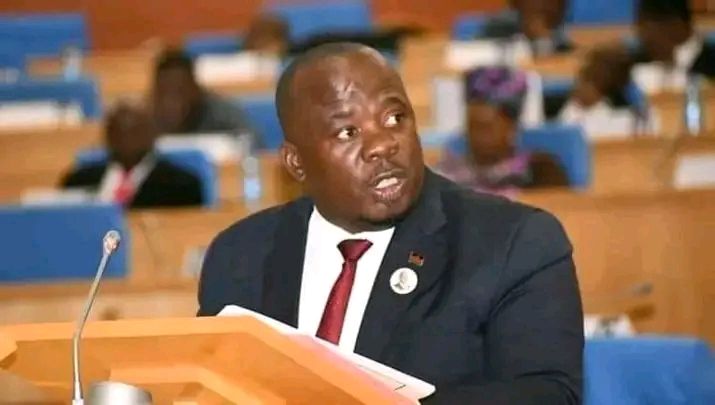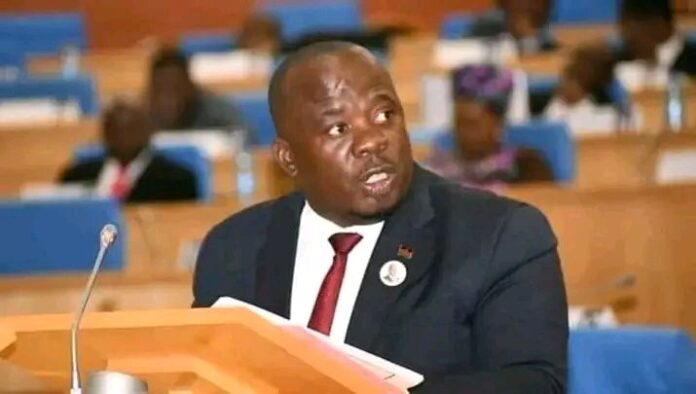By Jones Gadama
In the tumultuous landscape of Malawian politics, the figures of Richard Chimwendo Banda and Vitumbiko Mumba have emerged as polarizing characters, embodying the internal strife and disillusionment that many citizens feel towards the Malawi Congress Party (MCP).
Their ongoing rivalry, often characterized as a “cold war,” has not only drawn the ire of the public but has also raised serious questions about the integrity and future of the MCP.
As the nation approaches the critical elections in September, the actions and behaviors of these two individuals serve as a testament to the party’s potential downfall, revealing a troubling narrative of ambition, greed, and a disconnect from the electorate.
Chimwendo Banda, the current Minister of Local Government,has been a prominent figure within the MCP, often seen as a loyalist to the party’s leadership.

However, his recent actions have sparked outrage among the populace, who perceive him as a symbol of the very corruption and mismanagement that has plagued Malawi for decades.
The allegations of amassing wealth through dubious means are not merely whispers in the political corridors; they reflect a broader sentiment of frustration among citizens who have long suffered under the weight of economic hardship and political misgovernance.
The perception that Banda is enriching himself at the expense of the very people he is meant to serve is a narrative that resonates deeply with voters, and it is one that could have dire consequences for the MCP in the upcoming elections.
On the other hand, Vitumbiko Mumba, a rising star within the party, has also found himself embroiled in controversy.
His ambition and desire for power have led to a series of confrontations with Banda, further exacerbating the rift within the MCP.
Mumba’s approach, often characterized by aggressive political maneuvering, has alienated many within the party and the electorate alike.
Instead of fostering unity and collaboration, his actions have contributed to a toxic environment that stifles constructive dialogue and progress.
The public’s weariness with this internal conflict is palpable, as citizens yearn for leaders who prioritize the welfare of the nation over personal ambition and rivalry.
The ongoing feud between Banda and Mumba is emblematic of a larger issue within the MCP: a lack of coherent vision and direction.
As the party grapples with its identity in a rapidly changing political landscape, the infighting between its leaders only serves to highlight its weaknesses.
Voters are increasingly disillusioned with a party that appears more concerned with internal power struggles than with addressing the pressing issues facing the country.
The MCP’s failure to present a united front and a clear agenda for governance is a significant liability as the elections approach.
Moreover, the allegations of corruption and unethical behavior surrounding Banda and Mumba are not isolated incidents; they reflect a systemic problem within the MCP.
The party’s historical legacy is marred by accusations of authoritarianism and human rights abuses, and the current leadership seems to be perpetuating this troubling legacy.
The public’s skepticism towards the MCP is rooted in a long history of broken promises and unfulfilled aspirations.
As citizens prepare to cast their votes, they are acutely aware of the need for accountability and transparency in governance.
The actions of Banda and Mumba, rather than inspiring confidence, have only deepened the public’s mistrust.
As the September elections draw near, the stakes could not be higher for the MCP.
The party’s survival hinges on its ability to address the concerns of the electorate and to demonstrate a commitment to ethical governance.
However, the ongoing rivalry between Banda and Mumba suggests that the MCP is ill-equipped to rise to this challenge.
Instead of focusing on the needs of the people, the party’s leaders seem preoccupied with their own ambitions and grievances.
This self-serving behavior is a disservice to the citizens of Malawi, who deserve leaders who prioritize their welfare above all else.
The potential for Banda’s arrest due to allegations of corruption adds another layer of complexity to the MCP’s predicament.
If these allegations are substantiated, it could serve as a catalyst for further disillusionment among voters.
The prospect of a leader facing legal consequences for unethical behavior is a narrative that could resonate deeply with a populace that has long been subjected to the whims of corrupt politicians.
The implications of such a scenario extend beyond Banda himself; they could tarnish the entire MCP brand, leading to a significant loss of support in the elections.
In contrast, Mumba’s aggressive political tactics may have initially garnered him some support, but they are increasingly viewed as reckless and counterproductive.
The public’s fatigue with the ongoing power struggle within the MCP is palpable, and Mumba’s failure to rise above the fray only serves to reinforce the perception that he is more interested in personal gain than in the collective good.
As voters seek leaders who embody integrity and vision, Mumba’s approach may ultimately backfire, leaving him vulnerable to criticism and rejection at the polls.
The political landscape in Malawi is shifting, and the electorate is becoming more discerning in its choices.
The days of blind loyalty to political parties are waning, as citizens demand accountability and transparency from their leaders.
The rivalry between Banda and Mumba, rather than galvanizing support for the MCP, is likely to alienate voters who are tired of the status quo.
The party’s inability to present a cohesive and principled platform will only serve to exacerbate its challenges in the upcoming elections.
The ongoing cold war between Richard Chimwendo Banda and Vitumbiko Mumba is a microcosm of the larger issues facing the Malawi Congress Party.
Their rivalry, marked by allegations of corruption and self-serving behavior, reflects a troubling disconnect from the electorate and a failure to address the pressing needs of the nation.
As the September elections approach, the MCP must confront the reality that its internal strife and lack of vision could lead to its downfall.
The citizens of Malawi are weary of political gamesmanship and are demanding leaders who prioritize their welfare above personal ambition.
The time for accountability and ethical governance is now, and the actions of Banda and Mumba will undoubtedly shape the future of the MCP and the nation as a whole.



